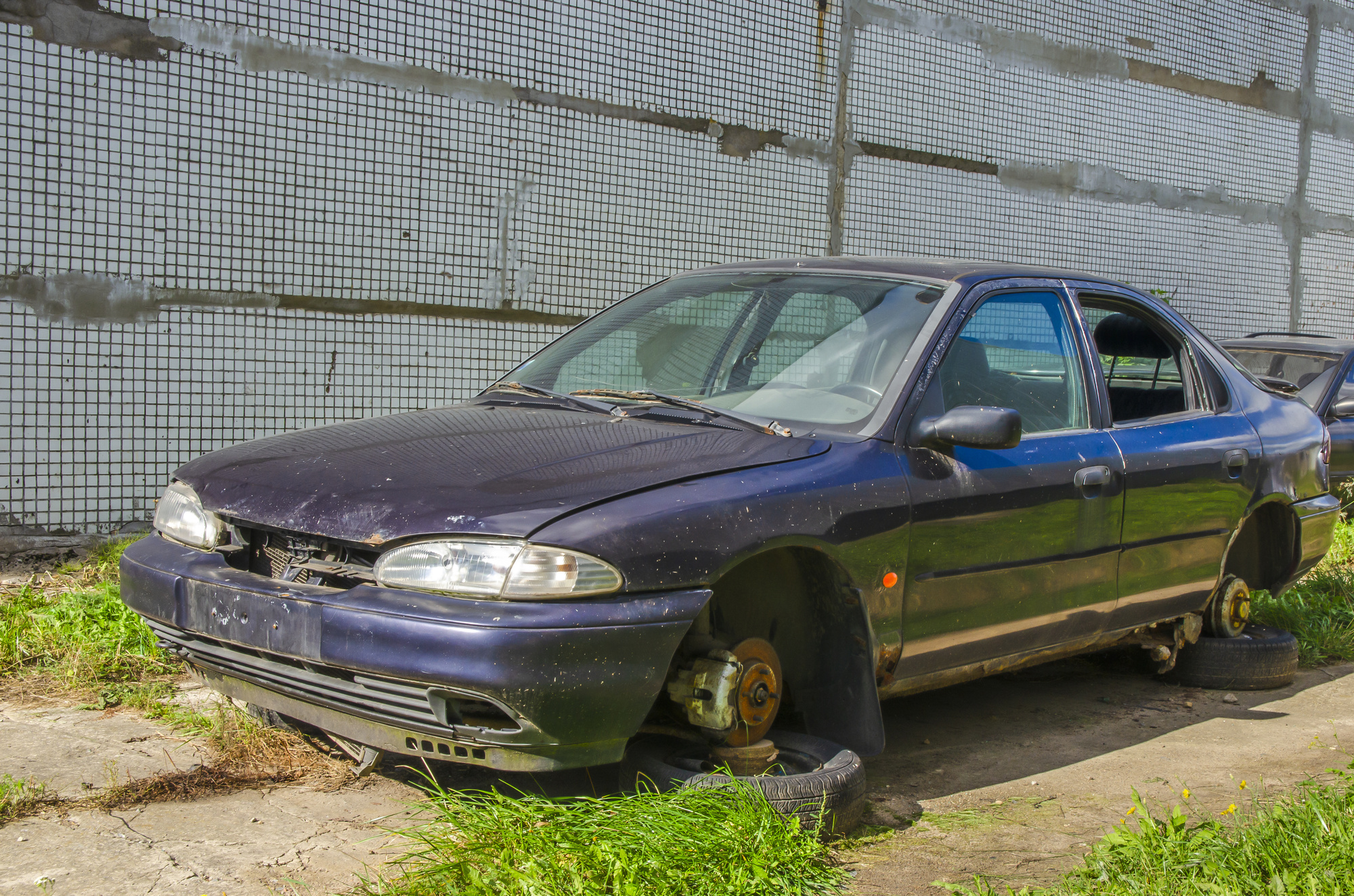Every year across the globe, 27 million vehicles reach their end of use.
And so after about 200,000 miles – 250,000 if you really push it – your car will be among the millions that call it a day. It might not refuse to drive, but at this mileage, you’ll likely spend more money on fuel, maintenance, and repairs. Plus, it’s unsafe to drive around in a junk car.
You might love seeing it on your driveway for some time, but as it gathers rust and dust, it’ll become unsightly. Or it will have to make way for a new set of wheels.
So, what should you do with your jalopy?
Keep reading to find out whether you should scrap or donate it.
Scraping a Junker
Although your car has reached its end of use, it doesn’t necessarily mean it has no value. You can sell the metal and other parts to a junkyard or auto salvage company.
Does the prospect of making some money off a car that you’d otherwise written off excite you? Here is a complete lowdown on how to scrap your junk car.
Comb the Car for Personal Valuables
Have you ever searched for something everywhere only to find it in your old car’s storage compartments?
If yes, you are not alone. For most people, a car’s storage compartments are home to everything from documents to jewelry.
As such, the first step to scrapping a car is to comb through it and collect your personal valuables. Check all the glove compartments, under the seats, in the trunk, and any other storage area in the car.
Remove Valuable Parts
This depends on whether you’re planning to sell to an auto salvage company or a junkyard. While junkyards crash the car and sell the scrap metal, salvage companies keep an eye on the valuable parts.
So if you’re planning to do business with an auto salvage company, skip this step.
But if you want to make money off the car’s scrap value, you want to extract parts that may fetch you some change when sold separately. These are parts like entertainment systems, alternators, and starter motors.
If you’re one of those drivers who know little about what happens under a car’s hood, you’re better off hiring a mechanic for this job. Yes, it will cost you some money, but a mech is your best chance of identifying all the valuable parts. And the mech could even link you to a retailer who can buy the parts.
Remove License Plates
“Why do I need the license plates when the car is dead anyway?”
Well, junk or not, your car needs its license plates. It’s what relevant authorities will use to identify ownership. And, in most states, you will need to hand over the plates when you want to transfer the ownership title to another party.
Nonetheless, this is an easy task. Just unscrew the plates from the car.
Cancel the Car’s Insurance
If the junk car has an active insurance cover, contact your insurer and cancel it. If you scrap it without canceling the insurance, nothing will stop the insurer from demanding premium payments.
Canceling insurance also helps you maintain a strong business relationship with your insurer. And depending on the terms of coverage, you might get a refund.
Get Ownership Paperwork in Order
Any legitimate junk car dealer will ask you to provide proof of ownership.
This means you need to get the car’s title and ensure the details on it are up to date.
If there’s anything that needs changing — maybe you’ve switched residences or even changed your official names since you purchased the car — visit your local department of motor vehicles and sort it out.
Find the Best Dealer
Chances are there are a handful of junkyards in your locality.
While you might be tempted to sell to the nearest yard, it’s best to shop around and find a dealer offering the best price. Read this useful post to learn how to improve your junker’s scrap value and get the best offer.
Also, considering that yards typically pay by the ton, be sure the check their weight scales are certified and not tampered with.
Donate Your Junk Car
There are a couple of good reasons to donate your car to a charitable organization.
One, as you can see the scrapping process is quite the hassle. Two, it’s an opportunity to give back to the community. Three, donating has some tax benefits.
Regardless of your motivation, donating is a simple and straightforward process as described below.
Identify a Charity of Your Choice
You can donate to a random charity, but it’s more thoughtful to give to a charity that pursues a cause that’s close to your heart.
If you love pets, for instance, donate to a charity that rescues homeless dogs, cats, and other pet animals.
Handover the Car to the Charity
After contacting your preferred charity, you’ll fill out a donation form and handover the junk car.
Some charities will take care of the towing, but you can also go full charity mode and pay for the towing charges.
The charity will use the car however it sees fit, but it will most likely scrap it and use the money to fund its operations.
If you’d like to claim a tax deduction, keep in touch with the charity and ask them to mail you the receipts once that car is sold or auctioned. You can claim the car’s fair market value (up to $500), regardless of how much the charity raises.
Get Rid of That Junk Car
Like most things, cars have a lifespan. And once they reach their end of use, you have two options: scrap or donate.
We’ve fleshed out the specifics of either option, so you’re now in a better decision to make an informed decision on how to get rid of your junk car.
Need more auto information? Explore our blog.

